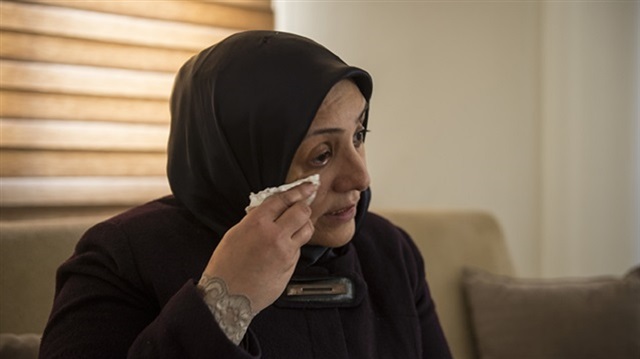

"The old Aleppo is still in my mind, the memories... But I didn't lose my faith; I am sure that Aleppo will be ours again one day," a Syrian nurse says in tears
The situation in the Syrian province of Aleppo, which has been witnessing brutal airstrikes, has been deeply influencing the old residents of the city. Gazve Milaji, who sought asylum in Turkey after the war, said that she still believes they will have Aleppo back one day.
"The old Aleppo is still in my mind and the memories influence me deeply. But I didn't lose my faith; I am sure that Aleppo will be ours again one day," said Milaji, in her speech to Turkish Yei Şafak daily newspaper.
Milaji talked about the brutal attacks they witnessed before leaving Syria.
"One of my children was killed by a bomb which targeted his school and my husband was among those who were wounded during the airstrikes. We didn't have any choice but to leave the country," she said.
Milaji, who is living in the southeastern Turkish province of Gaziantep, is making a radio program to become the voice of Aleppo as she is sharing information about Aleppo through the program," she said.
Thousands of people were evacuated on Thursday from the last opposition bastion in Aleppo, the first to leave under a ceasefire deal that would end years of fighting for the city and mark a major victory for the Bashar al-Assad regime.
In October, the U.N. Human Rights Council asked the U.N. commission of inquiry on Syria, led by Paulo Pinheiro, to identify the perpetrators of war crimes in the city of Aleppo.
The U.N. high commissioner for human rights, Zeid Ra'ad al-Hussein, said in October that air strikes in the city of Aleppo's opposition-held east by government forces and allies were responsible for the overwhelming majority of civilian casualties.
Russia and Iran-backed Assad regime intensified its attacks to the Syrian province of Aleppo, located 50 kilometers from Turkey, on November 15 as it had been launching attacks to the city since long before.
Syria has been locked in a devastating civil war since early 2011 when the regime cracked down on pro-democracy protests – which had erupted as part of the Arab Spring uprisings – with unexpected ferocity.
Since then, more than 250,000 people, according to the United Nations. The Syrian Center for Policy Research has established that the total death toll from conflict stands at more than 470,000.
#Syria
#Aleppo
#Gazve Milaji
#airstrike
#Assad




